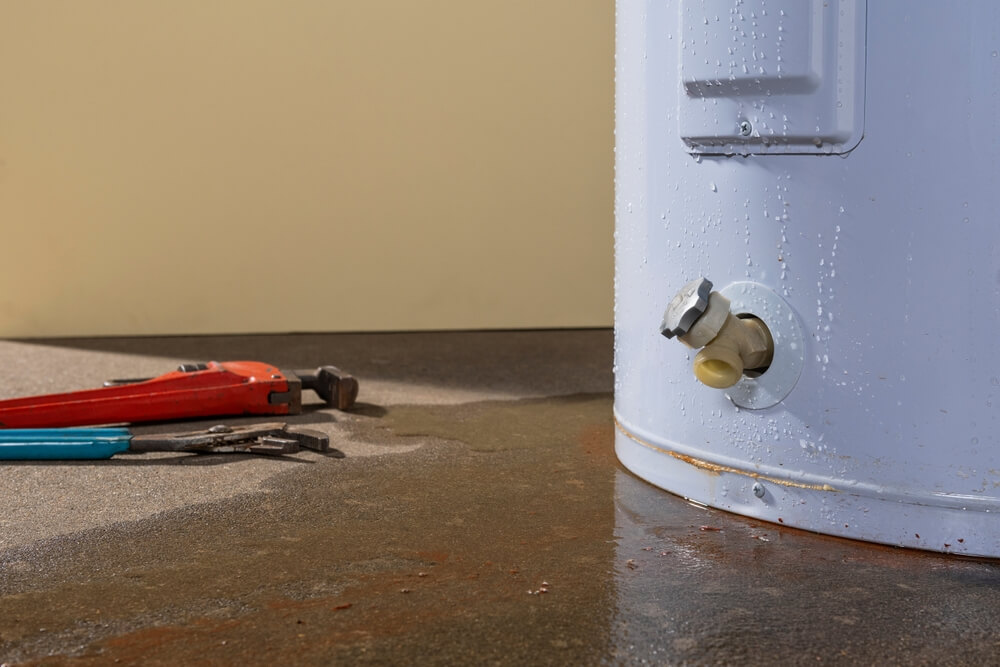
When it comes to water heaters, the worst way to replace them is to wait until your current unit goes out completely. No one likes to make a decision about an expensive piece of equipment in an emergency situation. It’s much better to do the necessary research in advance so you can consider your needs as well as the ramifications of different types of water heaters.
Then again, it’s best to replace your water heater before any kind of emergency can develop. This isn’t just to avoid the inconvenience of being without hot water for an extended time; it’s also good practice. Water heaters more than five years old are considerably less energy-efficient than new models.
So, when it comes to water heater questions or concerns, proactive planning and timely replacement can save you energy costs.
4 Water Heater FAQs
When looking for a water heater replacement, it’s important to know exactly what your home’s specific needs are and which unit to purchase. If you don’t know what size or style is best for your home, consult our professional plumbers so you can find the best unit.
When getting your water heater replaced, make sure that you ask the right questions so you can make an informed decision.
1. What Are the Different Types of Water Heaters?
A tank water heater is designed to heat and store a fixed quantity of water in a large tank, typically ranging from 20 to 80 gallons. This heated water is readily available for various household tasks, like bathing, washing dishes, or doing laundry.
The device works by constantly maintaining the stored water at a preset temperature using either electricity, natural gas, or propane as a source of energy. While tank water heaters are cost-effective and provide a steady supply of hot water, they have limitations. They can run out of hot water if used excessively and are less energy-efficient due to standby heat loss, as they keep the water hot all the time.
In contrast, a tankless water heater, also known as an instantaneous water heater, heats water only when needed. It doesn’t store hot water in a tank but instead heats it as it flows through the unit.
Tankless water heaters are known for their ability to provide hot water on demand, making them suitable for households with varying hot water needs. They are more energy-efficient as they don’t suffer from standby heat loss, and they can last longer than traditional tank water heaters. However, tankless units can have higher upfront costs and may require modifications to accommodate the increased electrical or gas demand.
2. Should I Buy a Gas or Electric Hot Water Heater?
When deciding between a gas or electric hot water heater, you need to consider various factors to make an informed choice that suits your specific needs. Gas water heaters typically offer faster heating and are known for their lower operating costs, making them a preferred choice for larger households with higher hot water demands.
On the other hand, electric water heaters are generally more energy-efficient and have lower upfront installation costs. They are often preferred in regions where electricity is more affordable or for smaller households with lighter hot water needs. Additionally, electric heaters tend to require less maintenance over time.
The decision ultimately depends on your individual circumstances, such as your budget, the availability and cost of energy sources in your area, and your hot water usage patterns. To choose the best unit, speak with a professional plumber who can assess your home’s needs and best meet your budget.
3. What Are the Benefits of Tankless Water Heaters?
Those who live alone or have a small house find that a tankless water heater provides enough hot water for everyday use. Before you decide on buying a tank or tankless water heater, consider the benefits that come with a tankless water heater:
- Energy Efficiency: On-demand water heaters only heat water when needed, reducing standby energy loss and potentially saving you money on your utility bills.
- Endless Hot Water: Tankless heaters provide a continuous supply of hot water, ensuring you never run out, making them ideal for larger households.
- Space-Saving: Tankless units are compact and wall-mounted, freeing up valuable floor space in your home compared to traditional tank-style water heaters.
- Longer Lifespan: Tankless water heaters typically have a longer lifespan than traditional ones, potentially lasting up to 20 years with proper maintenance.
- Reduced Environmental Impact: With their energy efficiency and longer lifespan, tankless water heaters are more environmentally friendly, producing fewer greenhouse gas emissions compared to conventional tanks.
4. How Should I Determine My Water Heater Sizing?
If your home is cramped for floor space, you can open up some room by switching over to a tankless water heater. With more space, you can place other items in the area where your old tank unit used to be. With a tankless water heater, you can maximize the functionality of your home, making it more versatile and accommodating to your needs.
Replacing water heaters is something all homeowners must face from time to time. By asking yourself these questions in advance, you can be prepared when that day comes.
If you need reliable advice, the professionals at Home Comfort Experts are always here to help if you have any questions or concerns. Contact us today or call us at (574) 319-7239 and ask us any hot water heater questions that can help you make an informed decision.



